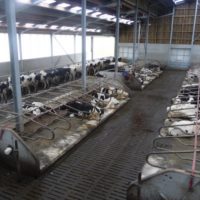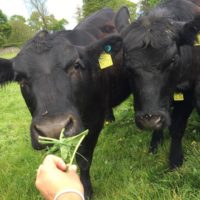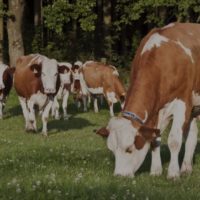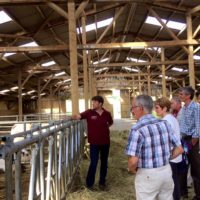Marguerite Happy-cow 2
Practice abstract
Description
The cooperative “Marguerite Happy Cow” is existing since 2015 and brings together regional dairy farmers and processors. About 10 dairy farmers are involved for a production of about 4 million liters milk per year, one feed supplier and 2 cheese factories. The different actors of the sector must respect a precise set of specifications, which aim is to produce a differentiated-quality milk, based on grass and local production. Another goal is to give the producers a fair income for this quality.
From now on, consumers are also allowed to take part into the co-op. The discussion brought these following pros and cons up:
Benefits for the farmer:
- Better well-being of the cow thanks to a diet mainly based on grazed grass in pastures and guaranteed without GMO
- Reduced ecological footprint due to local livestock feed and geographical proximity of different stakeholders in the industry
- Promoting family farming on a human scale and local jobs that cannot be relocated
- Requirements specifications are realistic and adaptable to the farm without too much investments
- Creation of a connection between producer and consumer, allowing discussion between them
- The milk price is less volatile than the milk price on international markets
- A premium is being paid to the farmers for delivering their milk to the co-op
Disadvantages for the farmer:
- Obligation to buy the concentrates from one specific food supplier
- Difficult management of milk urea content during summer, due to the almost exclusively grass-based diet
Abstract also available in:
Dutch | French | German | Italian | Polish | Swedish
Additional information
| Farming system | conventional farming |
|---|---|
| Main types of animal | dairy cattle |
| Country | |
| Product type | Practice abstract |
| Language | |
| Main domain of innovation | |
| Climate | |
| Soil Type |




